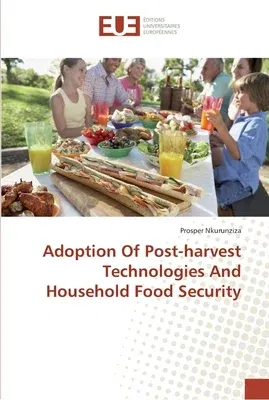Prosper Nkurunziza
(Author)Adoption Of Post-harvest Technologies And Household Food SecurityPaperback, 23 January 2018

Qty
1
Turbo
Ships in 2 - 3 days
In Stock
Free Delivery
Cash on Delivery
15 Days
Free Returns
Secure Checkout
Print Length
184 pages
Language
English
Publisher
Editions Universitaires Europeennes
Date Published
23 Jan 2018
ISBN-10
6202277874
ISBN-13
9786202277877
Description
Product Details
Author:
Book Format:
Paperback
Country of Origin:
US
Date Published:
23 January 2018
Dimensions:
22.86 x
15.24 x
1.07 cm
ISBN-10:
6202277874
ISBN-13:
9786202277877
Language:
English
Pages:
184
Publisher:
Weight:
276.69 gm

